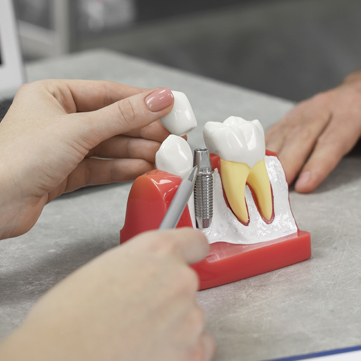Have you ever wondered, Do dentists check for oral cancer? Regular dental examinations are essential for promptly identifying and treating oral cancer. Understanding the importance of these screenings can significantly impact your oral health and overall well-being. Let’s explore what oral cancer screenings entail, why they’re essential, and how they contribute to maintaining a healthy smile.
Understanding Oral Cancer
Oral cancer refers to a range of malignant tumors that affect different parts of the oral cavity, such as the lips, tongue, gums, cheeks, and throat. The predominant form is squamous cell carcinoma, which arises from the slender, planar cells that coat the surfaces of the mouth. Another type is verrucous carcinoma, which grows slowly and has a wart-like appearance.
- Types of Oral Cancer:
- Squamous Cell Carcinoma The majority of oral malignancies originate in the flat squamous cells of the oral mucosa.
- Verrucous Carcinoma: Less common, characterized by slow growth and wart-like appearance, often found in the mouth.
- Risk Factors:
- Tobacco and Alcohol Use: Heavy consumption increases oral cancer risk.
- HPV Infection: Certain HPV strains, like HPV-16, raise the risk.
- Sun Exposure: Prolonged exposure can lead to lip cancer, especially on the lips.
- Age and Gender: More common in those over 45, with men at higher risk.
- Common Symptoms:
- Persistent Mouth Sores: Sores that don’t heal and may bleed.
- Pain or Difficulty Swallowing: Pain or a feeling of obstruction in the throat.
- Voice Changes: Hoarseness or unexplained voice changes.
- Unexplained Bleeding: Bleeding in the mouth without cause.
- Numbness or Pain: Pain, numbness, or tenderness in the mouth or neck.
The Role of Dentist in Oral Cancer Screening
Through regular exams during dental visits, dentists are very important in early identification of oral cancer. These screenings are vital because early detection significantly improves patient treatment outcomes and survival rates.
Importance of Early Detection:
- Timely identification enhances the likelihood of effective therapy and minimizes the need for lengthy, intrusive interventions.
- Regular screenings allow dentists to check for oral cancer and monitor changes in oral tissues over time, which helps identify potential cancerous or pre-cancerous lesions.
Techniques and Tools Used:
- Visual Examination: Dentists inspect the oral cavity, including the lips, tongue, gums, palate, and throat, for any abnormalities or suspicious lesions.
- Palpation: Physical examination of the oral tissues for lumps, bumps, or irregularities that may indicate cancerous growth.
- Adjunctive Tests: Some dentists may use additional tools such as special lights (fluorescence or dye-enhanced) to highlight abnormal tissues that may not be visible to the naked eye.
Frequency of Screenings:
- Individual risk variables like age, alcohol and tobacco use, and history of HPV infection determine the frequency of oral cancer screenings.
- Dentists typically recommend regular screenings for all adults during routine dental check-ups, with more frequent screenings for those at higher risk.
What Happens During an Oral Cancer Screening
Oral cancer screenings involve a thorough oral cavity examination to detect potential signs or symptoms, providing essential insights into oral health status.
- Step-by-Step Process:
- Visual Inspection: Examines lips, tongue, cheeks, gums, palate, and throat for color, texture, or size changes.
- Palpation: Feels oral tissues for lumps, bumps, or tenderness.
- Use of Tools: Utilizes mirrors, lights, or tongue depressors for enhanced examination.
- Patient Comfort:
- Screenings are quick and painless, minimizing patient discomfort.
- Dentists ensure clarity, addressing any concerns during the process.
- Follow-Up Recommendations:
- Dentists may advise further evaluation based on screening results, such as a biopsy.
- Encourages regular dental check-ups and screenings for early issue detection.
Signs and Symptoms That Dentists Look For
Dentists check for oral cancer signs during routine exams, initiating timely interventions and specialist referrals for patient care.
- Detailed Examination of Oral Tissues:
- Examine tongue, gums, cheeks, palate, and throat for abnormalities.
- Notes changes in color, texture, size, or shape indicating cancer or pre-cancerous conditions.
- Discussion on Suspicious Lesions:
- Informs patients of suspicious findings, recommending diagnostic tests like biopsies.
- Emphasizes communication, ensuring patient understanding and cooperation.
- Biopsies and Diagnostic Tests:
- Biopsy collects tissue samples for lab analysis, confirming cancer presence.
- Coordinates with specialists for treatment plans based on biopsy results.
Why Early Detection is Crucial
Early oral cancer detection enhances treatment success and patient outcomes, emphasizing preventive screenings and oral health monitoring.
- Impact of Early Detection:
- Improves treatment efficacy, reducing the need for invasive procedures.
- Enhances quality of life, minimizing impact on essential functions.
- Support and Resources:
- Provides patient support, including specialist referrals and counseling.
- Holistic care addresses the emotional and psychological aspects of cancer.
- Promoting Oral Health:
- Stresses regular check-ups for issue prevention and early detection.
- Encourages healthy habits like smoking cessation and oral hygiene for cancer risk reduction.
Conclusion
Regular dental check-ups are vital for preserving oral health and recognizing potentially life-threatening illnesses like oral cancer in its early stages. Dentists are trained to perform thorough oral cancer screenings as part of routine exams, providing patients with peace of mind and proactive health management. If you have not had a dental check-up, consider scheduling one today to ensure optimal oral health.
Ready to Ensure Your Oral Health? Schedule Your Oral Cancer Screening Today!
Ensure your oral health is a priority by scheduling a dental check-up and oral cancer screening in San Antonio today at Terrell Hills Dental. Contact us to book your appointment conveniently online. Your health and well-being are our top priorities, and we’re here to support you every step of the way.






